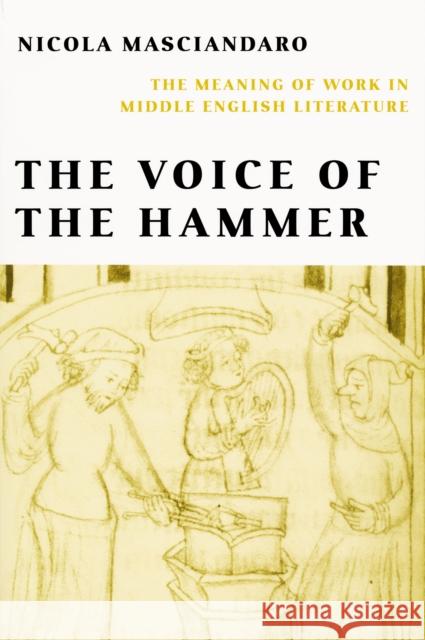Voice of the Hammer : The Meaning of Work in Middle English Literature » książka
Voice of the Hammer : The Meaning of Work in Middle English Literature
ISBN-13: 9780268034986 / Angielski / Miękka / 2006 / 224 str.
Through an analysis of literary representations of work, Nicola Masciandaro explores how late medieval authors, influenced by the labor-related crises of the fourteenth century, sought to articulate the meaning of work in fresh and contrasting ways. The cultural landscape of late medieval England was fertile territory for literary representations of work. This territory was shaped by the increasing commercialization of economic relations, the social agitation of the agricultural and artisan classes, and the growing formalization of consciousness of status. In The Voice of the Hammer, Masciandaro analyzes the Middle English terms to show how words for work were related to status and class attitudes, as well as demonstrating the broad awareness in late medieval society of work's nature and processes and the deeper concern about the relationship between occupation and personal agency. Masciandaro offers close readings of specific texts--the history of masonary in the Cooke MS, John Gower's Confessio Amantis, and Chaucer's Former Age--which reveal that literary engagement with work, though rooted in biblical, classical, and earlier medieval traditions, constituted a significant form of discourse and debate on the status of labor in medieval English. The Voice of the Hammer also explores how fourteenth-century literature, Chaucer's Second Nun's Tale and Canon's Yeoman's Tale especially, sought the meaning of work in the self, as personal fulfillment over and above the fulfillment of material and moral responsibility. What emerges is a fascinating portrait of the conceptualization of work as a distinct and problematic field of experience.











